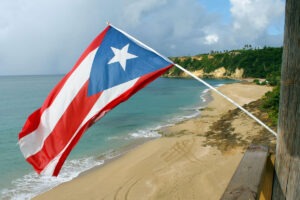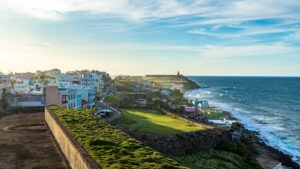
November 8, 2017; The Intercept
Efforts are underway in Puerto Rico to reform the island’s education system, with post-Katrina New Orleans—the only city in the country to have a school system that is entirely composed of charter schools—as a point of reference. But teachers and local residents are fighting back with a guerrilla campaign to reopen the public schools themselves.
There are currently no charter schools in Puerto Rico. But the Intercept’s Aida Chavez wrote, “Last month, Puerto Rico’s Public-Partnership Authority director spoke optimistically about leveraging federal money with companies interested in privatizing public infrastructure.” As NPQ and others have noted repeatedly, this response is part of the crisis capital playbook known as Shock Doctrine.
Puerto Rico has been in an economic depression for over a decade and its schools were struggling before Hurricane Maria. Between 2006 and 2016, 700,000 students left the island. Earlier this year, Puerto Rico closed 200 schools as part of its austerity effort.
Further, 90 percent of the island’s public-school students were low income before the hurricane. Last year, fewer than half of the island’s students scored proficient in Spanish, math, English, or science. The graduation rate is at 75 percent.
Julia Keleher, Puerto Rico’s Education Secretary, says that Hurricane Maria gives Puerto Ricans a “real opportunity to press the reset button…to create new, better schools.”
Jeanne Allen, founder and CEO of the Center for Education Reform, which supports “choice and charter schools,” notes that Keleher doesn’t seem to have grassroots support on the island in spite of the fact that she’s been working to transform its education system since 2007. Referring to Keleher’s approach, she says, “We really thought there would be a much larger conversation going by now, and so far, it seems limited to the grasstops, not the grassroots.”
After the hurricane, all 1,113 schools across Puerto Rico closed. At the beginning of November, still 598, almost half, are closed. Thousands of the island’s 347,000 students have left for the US mainland. Teachers have also fled, though they have until January 8, 2018 to return and reclaim their jobs.
Chavez writes,
Sign up for our free newsletters
Subscribe to NPQ's newsletters to have our top stories delivered directly to your inbox.
By signing up, you agree to our privacy policy and terms of use, and to receive messages from NPQ and our partners.
Puerto Rico’s Department of Education gets to determine which schools reopen, but the process has been anything but transparent. Public school advocates fear that the Department’s refusal to open habitable schools foreshadows permanent closures and school privatization. The department has already estimated up to a fifth of schools will never reopen.
In order for a school to open, it must pass inspection—it “must be cleaned, repaired, and disinfected.” Chavez notes that in many cases, it is teachers and community members who are doing this work to prepare the schools. Yet, many don’t understand why their schools are not reopening, even as they are sound enough to be used a community center for displaced Puerto Ricans.
Lulu Arroyo, an assistant to the executive director of Instituto Nueva Escuela, a nonprofit that supports Montessori schooling in Puerto Rico, says, “The Department of Education is saying, ‘Oh, you can’t open your school because it’s not ready,’ but it is ready, and if it can be used as [a community center], why can’t it be used for its normal operation?”
Aida Diaz, president of the island’s teachers’ union, Asociación de Maestros de Puerto Rico, which has 40,000 members, says she is concerned about Keleher’s reform efforts. “This is why we are reopening the schools, this is why teachers are cleaning and rebuilding those schools. We don’t want anyone to come here and start doing charters here.”
Ana Maria Garcia Blanco, executive director of Instituto Nueva Escuela, says that she and other public-school advocates are frustrated with the “callousness” of school reformers. She contends that the focus should not be on restructuring, but on serving the island’s children, many of whom would benefit from the daily meals that would be provided at the schools if they were allowed to open.
The island’s teachers’ union recently called for greater transparency regarding school inspections and the terms of the contract between the island’s government and the CSA Group, the company contracted to conduct the school inspections. CSA Group has previously been investigated for conflicts of interest. In response, Puerto Rican Governor Ricardo Rossello canceled the contract with CSA last week.
As the privatization battle wages on in Puerto Rico, schools are operating without authorization. Arroyo says, “We don’t really know what’s their agenda, but our mission is for all schools to open as soon as possible.”
Paul Pastorek, Louisiana’s superintendent of schools during Katrina and whom Keleher contacted after Maria, says, “You can look at lots of different situations, but the real question is, ‘What do the Puerto Rican people want for themselves?’”—Cyndi Suarez













